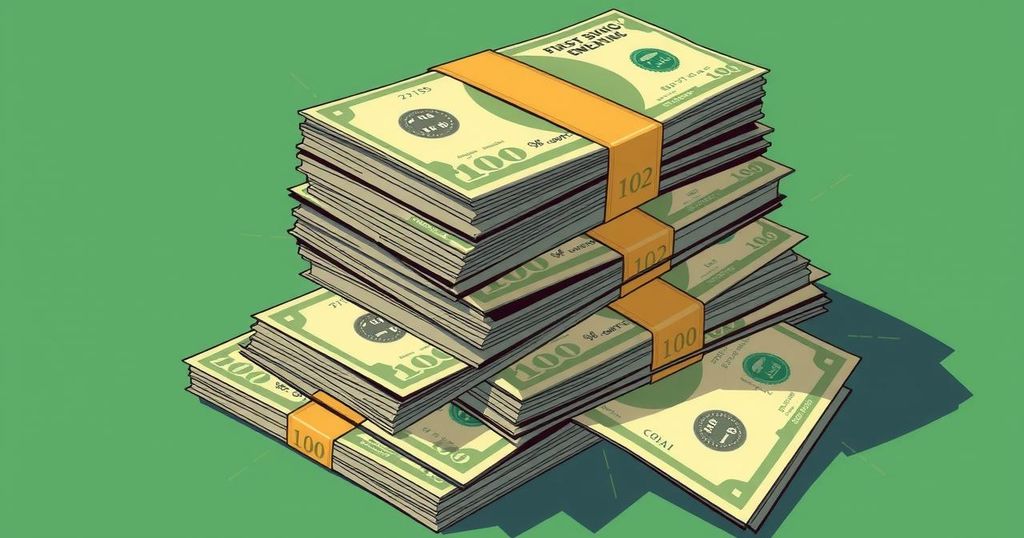Ghana’s energy sector is burdened by GH¢80 billion in debt, highlighting urgent financial challenges. Minister Jinapor emphasizes the need for drastic measures and collaboration with Civil Society Organisations to restructure financial obligations. Warnings from both Jinapor and Finance Minister Dr. Ato Forson suggest significant reforms are necessary to avoid a crisis. The IMF also identifies this sector as a major financial risk, underlining the urgency for sustainable solutions.
The Energy and Green Transition Minister, John Abdulai Jinapor, has highlighted the alarming rise of debt within Ghana’s energy sector, which has now reached GH¢80 billion. Of this sum, the Electricity Company of Ghana (ECG) accounts for more than GH¢60 billion. Mr. Jinapor emphasized the urgent need for comprehensive measures to avoid a potential financial crisis in the sector.
During a meeting with Civil Society Organisations (CSOs) on March 18, 2025, Jinapor described the financial strain as unsustainable, stating, “The rate at which debts are piling up in the energy sector makes it imperative to take drastic measures. If we do not act now, we risk a major crisis.”
He underscored the critical challenge of financing in the sector and encouraged CSOs to offer innovative ideas and proposals for restructuring financial obligations. Jinapor’s comments align with recent warnings from Finance Minister Dr. Cassiel Ato Forson, who cautioned that energy sector debt could escalate to $9 billion (GH¢126 billion) by 2027 without urgent reforms.
The International Monetary Fund (IMF) has also identified Ghana’s energy sector as a significant financial risk, indicating that legacy debts were approximately $2.1 billion (GH¢29.4 billion), equating to 2.8% of the nation’s Gross Domestic Product (GDP) as of December 2023. In response to these pressing issues, Mr. Jinapor reassured CSOs of the government’s dedication to establishing sustainable solutions to stabilize the energy sector, highlighting that transparency and collaborative stakeholder involvement are essential in overcoming the challenges facing Ghana’s energy realm.
In conclusion, Ghana’s energy sector faces a critical financial crisis with debts reaching GH¢80 billion. Minister Jinapor’s proactive stance underlines the necessity for immediate and structural reforms to mitigate this risk. His call for collaboration with Civil Society Organisations emphasizes the importance of collective efforts toward sustainable solutions and transparency in tackling these challenges. The financial warnings from both Jinapor and Dr. Forson reflect the urgent need for decisive action to ensure the stability of the energy sector.
Original Source: www.gbcghanaonline.com




